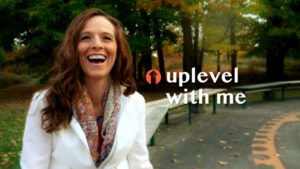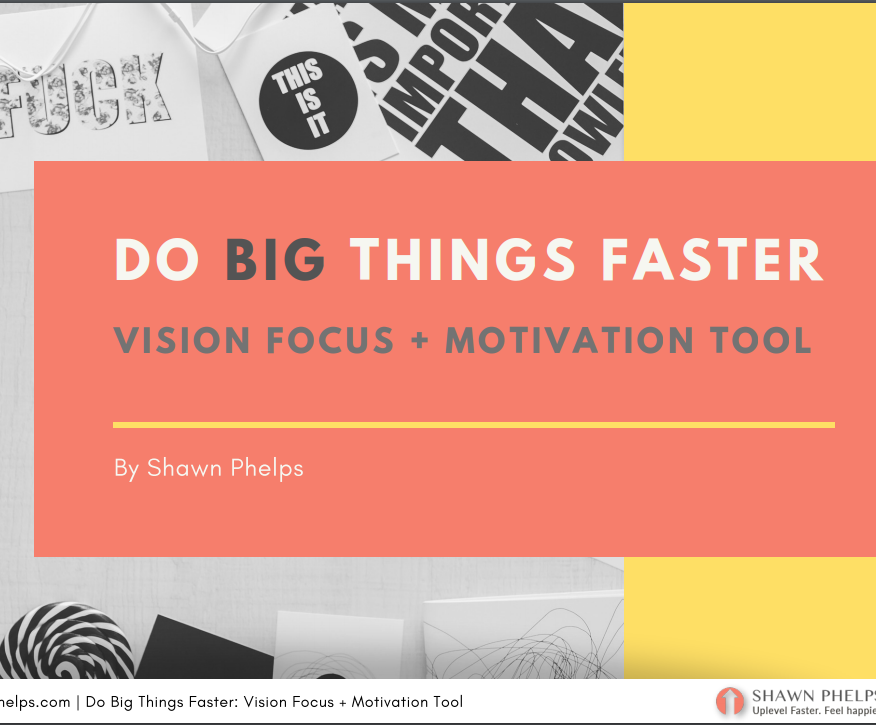This post is part 1 of a 2-part series: an in-depth guide to abundance.
Part 1. Are You Practicing The False Abundance Mindset?
Part 2. The True Abundance Mindset That Creates Genuine Happiness
Of course you want it all—what the new-age gurus call “abundance”. You’ve been assured that it’s your birthright. The universe provides. Limitless abundance.
Seriously, you can have everything you want. A mansion? Sure! A warehouse full of Ferraris? Why not? A business bringing in millions every year? Again, yes. Of course!
I mean look at Anthony Robbins.
Before I start picking on him, let me first make it clear that he’s one of my heroes; you’ll find few people on Earth more generous than this guy. He has transformed the lives of millions for the better (not only as a self-help superstar, but also with his foundation), so surely he deserves to own four mansions (one, in Fiji, with 500 acres), and if he wants to demolish a perfectly good mansion to replace it with something he likes better, all the best to him, right?
Yet, deep down, if you’re anything like me, you’re haunted by thoughts like: what’s the line between abundance and greed? Sure, maybe I CAN have everything I want, but why do I want all these things anyway? Are they really going to make me happy? And won’t my having all these things I don’t need impact me and other people in a bad way?
But then you think: “Maybe this is my limiting beliefs talking.” That’s probably what Tony would tell you. Maybe you’re afraid to be wealthy, or you don’t feel worthy or you have a secret belief that “rich people are bad” and it’s holding you back.
While you likely do have limiting beliefs holding you back (and I’d recommend using EFT to clear them), that’s besides the point. Wanting money isn’t the problem. Money can be a glorious thing.
I think the real problem is that we have forgotten what “abundance”—the kind that leads to genuine happiness—actually means. Instead, we’ve been taught a “False Abundance Mindset” by people like Tony (who genuinely mean well, BTW) and, while we’d all love to believe it’s perfectly fine to indulge our every whim and desire, it’s not going to make us happy or create the better world we’re hoping for.
The Big 3 Misunderstandings About “Abundance”= The False Abundance Mindset
- “Abundance” means having whatever we want, whenever we want it.
- Since having abundance is our birthright, it’s okay for us to exploit others and the Earth to have it (many so-called “spiritual” people justify this with a belief that the Earth will magically “manifest” more of it; never mind that it might take a million years or so).
- We should wholeheartedly “pursue” abundance as defined in #1 and #2, because it’s the path to happiness.
Insights From My Friend, Ximena
I asked my good friend, Ximena, what she thought about the confusion around “abundance” over coffee last week. After all, she’s one of the most alive people I know—full of curiosity and a love of learning, with a deep passion for empowering people, changing systems and making the world a better place. She’s a produce quality control manager who just left her job at a major food terminal to start up a fair trade agriculture business in Chile, where she was born.
She has often talked to me about how infuriated she feels by the amount of waste that happens as a natural part of our food system. The short version is that so much food is shipped in that tons of it goes bad before it ever reaches the public. Often it doesn’t even get composted. It just goes into landfill.
Her stories made me rethink how I purchase food. I, too, have been seduced by the “False Abundance Mindset.” Like everyone else, I like the fantasy that it’s okay for me to have whatever I want, when I want it. But what this looks like in practice is, I get seduced by all the food at the store and buy too much. Then half of it goes bad and I have to throw it out. The story always ends with me feeling awful, because as someone who has grown food, I know its true value.
The Sacred Value of All Things
To solve this problem, when I go shopping now I make a conscious effort to consider the sacred value (and true cost, which includes any possible exploitation of people, animals and the Earth) of each item. Many people only consider animals as sacred, so they don’t eat them. But as someone who made a run at being a permaculture farmer (and now grows vegetables on my condo balcony) and ate a strict vegetarian diet for a decade (not anymore), I have a different point of view.
Like animals, each plant is a living thing; it has a life experience. It wants to grow to its full potential. When I shove it into the back of my fridge without awareness of its true value—its life force, how many months it took to grow, all the water and nutrients that went into keeping it alive, the damage that was done to the earth if it was grown on a mono-culture farm, and all the insects and animals that were killed by the farmer so it wasn’t half eaten when I bought it—I’m forgetting that I’m part of a larger ecosystem in which I’m expected to play a role. I’m like a rogue tree in a rainforest, stockpiling more nutrients than I need, at the expense of all the other trees and creatures around me.
This doesn’t just apply to food.
It also applies to people buying multiple giant homes that use large amounts of land and resources, then only live in each one for a couple months per year. If a forest was removed so a house could be built, millions of living things that were part of that ecosystem were extinguished. Obviously this particular thing annoys me. Please believe me when I say that I’m trying my best to make my point without annoying you.
My Own Affair With Indulgence
As I’ve hopefully made clear, I struggle with this as much as anyone. I love indulging. Joel will readily tell you that I love myself a mohito in a tropical place, especially if I can sit in a cafe overlooking a city square in a place like Granada, Nicaragua. And it’s not that I wouldn’t love a mansion, or three—I am a huge fan of beautiful places and things.
It’s just that I lived next to a shantytown in South Africa where up to 10 people lived in one shack, and I’ve worked on charity projects near Calcutta, where eight-year olds work 10-hour days, and I co-ran a charity in South East Asia, where large numbers of tribal people who had farmed one area for decades were “relocated” to a place where they couldn’t grow anything, just so wealthy people could have their land. These experiences along with a few others have, frankly, made it hard for me to be comfortable with owning multiple mansions (not that that’s a possibility right now, anyway). The 1-bedroom, 600 square-foot condo I share with Joel is luxurious enough (there’s a pool and a gym!), and I love the clutter-free simplicity of living in a small space.
I definitely don’t feel we should all live in shacks and eat gruel every day. I’m a big believer in supporting small local shops and restaurants that are run by passionate individuals, rather than international corporations. I also believe in spending more for something that was made with love, or at least with the kind of quality that lasts, rather than something made in a factory in China. I’m honestly not sure if I could cope with life without my cookies and Americanos. I just think there should be limits to our indulgence. What I’ve experienced, and I’m sure you have too, is that limitation actually creates a context for greater appreciation. It makes us appreciate what we do have much more.
The real problem with the False Abundance Mindset is that it causes us to stop noticing that our lives already have inherent value, just because we exist. We don’t need to be famous and wealthy to prove our value. We ARE Life, and Life has value. Period.
Abundance vs. Excess
After Ximena and I had been talking for a while about all the ways we abuse this concept of “abundance”, I asked her what she would call it.
“The right word for this is clearly not abundance,” I said. “So what is it?”
“It’s excess,” she replied, her usual radiant smile replaced with a frown.
“Right!” I said, my voice booming with a little too much enthusiasm, earning me a few odd stares from the couple at the next table. “We’re all confusing ‘abundance’ with ‘excess’. And it’s fucking up everything.”
A Conversation With Joel—A Logical Systems Thinker
When I returned home to the apartment after having coffee with Ximena, I tested out these ideas on my partner, Joel. He’s a computer programmer who does all the complex back-end stuff, which means he’s a logical thinker with a deep understanding of complex systems. He and I basically live on opposite sides of the brain. So I figured if I could explain this idea clearly to him, then it’d be worth sharing it with you, here in my blog.
Predictably, he immediately said: “Give me an example.”
“Okay,” I said. “Abundance is when you’re hungry and you grab an apple off a nearby tree. You might even take an extra one for later.
Excess is when you take all the apples off the tree, even though you don’t need them. Maybe you store them in your basement, where half of them rot. Or maybe you sell them. The point is you assume they’re all there for you. But if you do that, then there aren’t any left for insects, animals or other people. Of course, I’m not really talking about apples here. It’s just an analogy.”
“I get it,” he said. “Makes sense.”
(As you can see, Joel, unlike me, can never be accused of using excess words to express an idea. He’s very efficient.)
So, yeah. We have confused abundance with excess.
No Fish in the Sea
Not to be a Debbie Downer, but because we have embraced the idea that “excess is okay”, we will soon have almost no fish left in the sea. Here’s a well-researched article from the BBC in 2012.
What will we do when all the fish are gone—meditate to manifest more of them?
Advice From an Iroquois Chief
I wonder what the Native Americans would say about Tony Robbins version of “abundance”? If we asked the Iroquois Chief, Oren Lyons, he might have said this:
I prefer to learn about abundance from someone like the President of Uruguay, who lives a simple life and radiates with a gentle but genuine happiness (perhaps developed from a deep appreciation for just having basic rights and freedoms after spending 14 years in jail—context is a beautiful thing). When he addressed the Rio+20 Conference on Sustainable Development he made it clear that his idea of abundance for all was not the same as the other leaders there:
A Participatory Dance Where Everyone’s In On The Fun
Personally, I see the Abundance Mindset as an ongoing participatory dance of sharing. It’s not just something you create for yourself; it’s a complex existing system to which you contribute what you can and take what you need. It’s about supporting the health of the “whole” ecosystem of which we are a part; Life itself, which encompasses everything on Earth.
When we step into the power of our True (Authentic) Selves, we become a powerful and healing part of this beautiful, complex ecosystem of give and take that is active at every level of Life itself. And we breathe our very Life into creating the kind of world we’ve wanted since the day we were born.
P.S.: Part 2 is Much More Cheerful
At this point, you might be wishing you never read this. You may even be thinking that the true version of “abundance” will be a total drag. Trust me when I say: absolutely not.
Life was meant to be a great adventure, full of delight and discovery. So, if you found Part 1 depressing, I hereby promise to bring a smile back to your face with Part 2 of this post: The “True Abundance Mindset” That Creates Genuine Happiness. Stay tuned.



